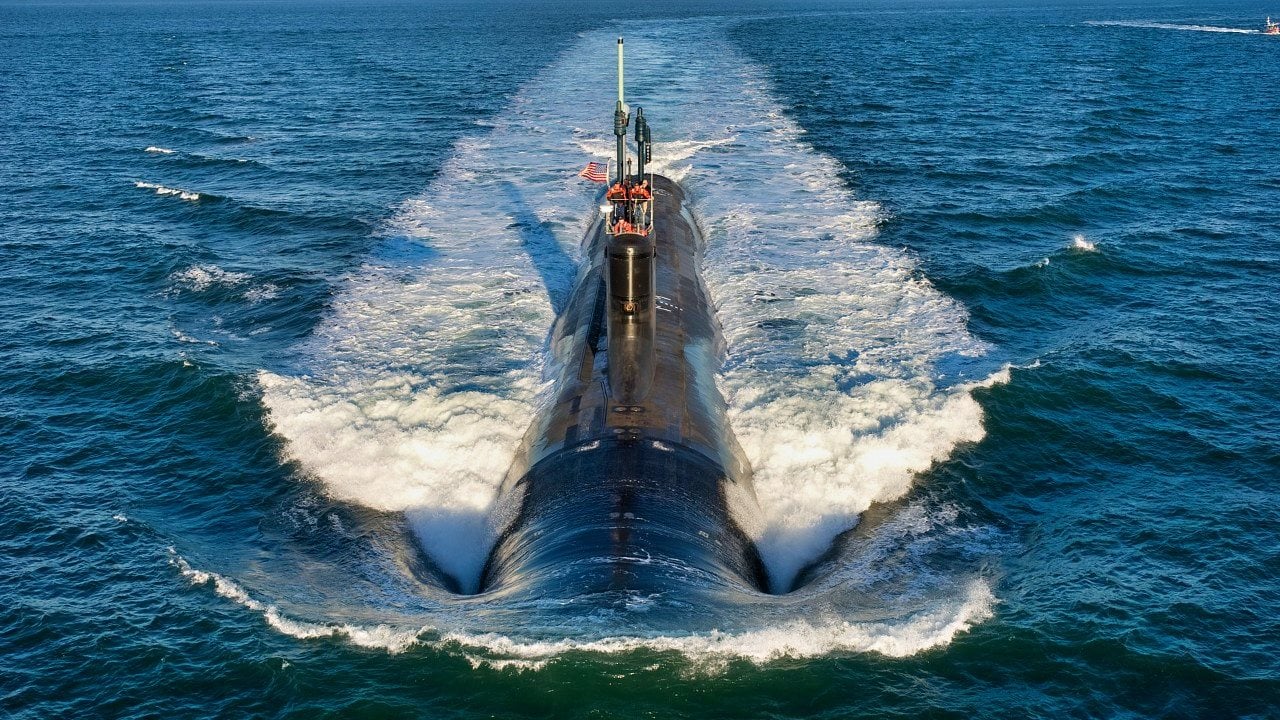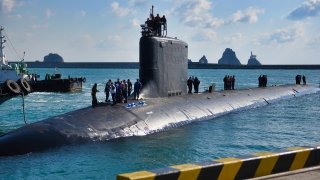The Virginia-Class Submarine Has 2 Problems That Won't Be Easy to Fix
The U.S. Navy’s submarine fleet is under congressional scrutiny for repeated delays and rising costs. The secretary of the Navy went to the Hill last week asking for nearly $2 billion to fund the construction of two Virginia-class nuclear submarines. Lawmakers were not happy with the funding gap.
The U.S. Navy’s submarine fleet is under congressional scrutiny for repeated delays and rising costs.
The secretary of the Navy went to the Hill last week asking for nearly $2 billion to fund the construction of two Virginia-class nuclear submarines. Lawmakers were not happy with the funding gap.
In Search for Money for Virginia-Class
On Thursday, Secretary of the Navy Carlos Del Toro went in front of the House Appropriations Committee’s defense subpanel. He was looking for $1.95 billion to bridge a funding gap for two Virginia-class nuclear-powered attack submarines.
Congress wasn’t happy with the request.
“I am accountable to the taxpayers, and Mr. Secretary, you are accountable to me,” Rep. Ken Calvert, R-Calif., chairman of the House Appropriations Committee’s defense subpanel, told the Navy’s top official.
Congress only found out about the funding gap in September. The Navy can’t proceed with the construction of the two vessels without approval from Congress.
“I am skeptical that either will successfully get these fiscal year 2024 Virginia submarines under contract,” Calvert said.
“For too long, this committee has been put in a position of asking what the Navy is hiding behind the curtain – it’s time to pull down the curtain altogether,” Calvert stated.
For 2025, the Navy has requested almost $260 billion from Congress. That is a lot of money, but the Navy has a huge fleet to maintain and upgrade. Congress wants to avoid unnecessary costs. The Virginia-class program is estimated to run $17 billion over budget.
“Somehow, the Navy continues to assert that commitments and our AUKUS [Australia and United Kingdom] partners remain on track. This causes me to question whether you actually believe your rhetoric on the state of these programs, despite the facts,” Calvert added.
“Our submarines truly are the apex predators of the sea, both technically and quantitatively superior to any submarines fielded by our adversaries – principally, our pacing threat, the People’s Republic of China, and our acute threat, Russia. Submarines provide our Navy and our nation a critical, asymmetric advantage – which is why they have and will remain our No. 1 acquisition priority,” Del Toro told House lawmakers.
Attack submarines have a simple task: find and sink enemy shipping, thus denying the use of the seas to an adversary. In war, an effective submarine force could spell the difference between victory and defeat.
“This subcommittee is a strong supporter of the Navy, in particular our submarine programs. The Columbia-class submarines will host 70% of our nation’s nuclear deterrent. The Virginia-class submarines are the lynchpin of our strategy to outmatch China,” Calvert said. “However, submarines and ships only contribute to the fight if they actually exist — not just on paper.”

The U.S. Navy has the largest submarine fleet in the world, with over 70 vessels. However, the fleet is currently undergoing modernization, with Virginia-class subs replacing aging Los Angeles-class vessels. Moreover, the Navy is working on a next-generation submarine. But as the congressman from California so forcefully stated, the Navy needs to be able to field operational submarines without problems and on time in order for America’s submarine fleet to be competitive in the seas and deter potential adversaries.
About the Author
Stavros Atlamazoglou is a seasoned defense journalist specializing in special operations and a Hellenic Army veteran (national service with the 575th Marine Battalion and Army HQ). He holds a BA from the Johns Hopkins University and an MA from the Johns Hopkins’ School of Advanced International Studies (SAIS). His work has been featured in Business Insider, Sandboxx, and SOFREP.
Image Credit: Creative Commons.


